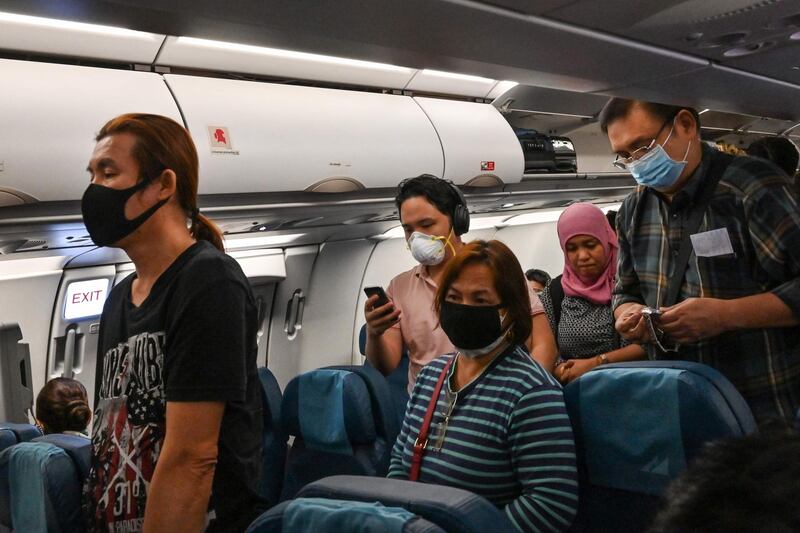The body representing global airlines came out in favour of passengers wearing masks onboard on Tuesday, as debate intensifies over how to get airlines flying while respecting social-distancing rules during the coronavirus pandemic.
The International Air Transport Association said that wearing masks would help protect passenger health but came out against leaving middle seats empty on aircraft, a measure that it had previously backed.
Iata's medical advisor, David Powell, said that wearing masks and face coverings onboard would be part of a range of measures including screening passengers before flying to make sure they did not have a fever, plus enhanced cleaning procedures that would allow flying to restart safely.
European flights have all but come to a standstill due to coronavirus. While there is no visibility on when travel restrictions will ease, airlines are considering how to safely restart services and give passengers confidence to fly.
Airlines such as Germany's Lufthansa and Hungary's low cost Wizz Air have already made it compulsory for passengers to wear face masks on flights.
In April, Iata director general Alexandre de Juniac said leaving the middle seat empty was among the likely conditions for a resumption of air travel to be discussed with governments around the world.
But Iata appeared to make a u-turn at an online news conference on Tuesday, when it said that leaving the middle seat empty would not enhance passenger safety.
Brian Pearce, chief economist at Iata said most airlines would have been unable to make money last year if a third of the seats had been removed on the industry's most-flown models.








